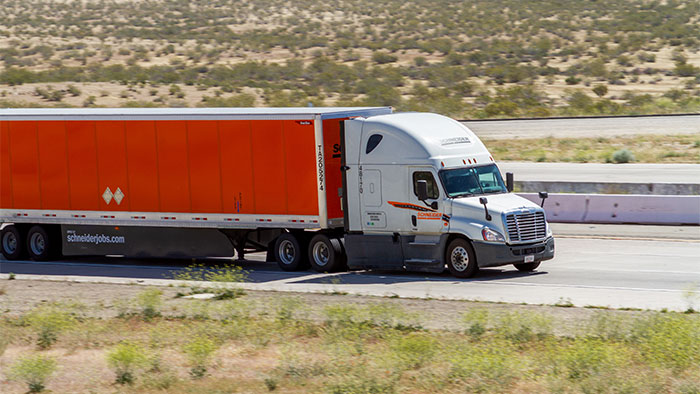California Law Sends Ripple Effects Through Supply Chains
- By [ Evan Armstrong , Jess Dankert ]
- 07/13/2022
California’s AB5 law restructured the classification of independent contractors by applying the strict “ABC test” to determine who is classified as an independent contractor versus an employee. AB5 was primarily targeted at the fast-growing “gig work” sector, but California lawmakers expanded the definition of workers and captured the trucking industry—including the port drayage trucking sector, which has long been a target of unions.
On June 30th 2022, the U.S. Supreme Court declined to hear the California Trucking Association’s appeal of California’s AB5 law’s application to truckers. As such, the future of California’s trucking industry and its nearly 70,000 independent truckers are now in doubt.
The independent “owner-operator” trucker has long been the backbone of the trucking industry. In California, over 70% of trucking companies ran just a single truck —this includes many of the drayage truckers who are essential to keep goods moving through California’s seaports. It is these small business truckers who will be most directly impacted, with ripple effects felt throughout the supply chain.

The state has yet to provide informational resources or tools for AB5 compliance to trucking companies or independent drivers, leaving a vacuum of confusion in the market. Drivers have already been leaving the market for other reasons—including higher fuel prices, declining spot rates, and opportunities in other industries like construction—and experts expect AB5’s effects to accelerate the departures. Latest news reports indicate some California truckers are participating in a work stoppage this week in protest of the law. Truck capacity—especially in port drayage—is expected to decrease in the near term and possibly over the longer term.
In addition to other efforts, this week RILA signed on to a coalition letter to California’s Governor Newsom, reiterating the troubling effects of AB5 on trucking and the economy, and asking the Governor to:- Provide a short term pause in enforcement via Executive Order
- Immediately call labor and industry to the table to negotiate a path forward to preserve small business trucking in the State of California and prevent further disruptions to the supply chain.
We will continue to monitor these urgent supply chain issues and keep RILA members apprised of any developments. For more information please contact RILA Vice President of Supply Chain Jess Dankert or Vice President of Workforce Evan Armstrong.
Tags
-
Public Policy
-
Supply Chain
-
Transportation and Infrastructure
-
Workforce



